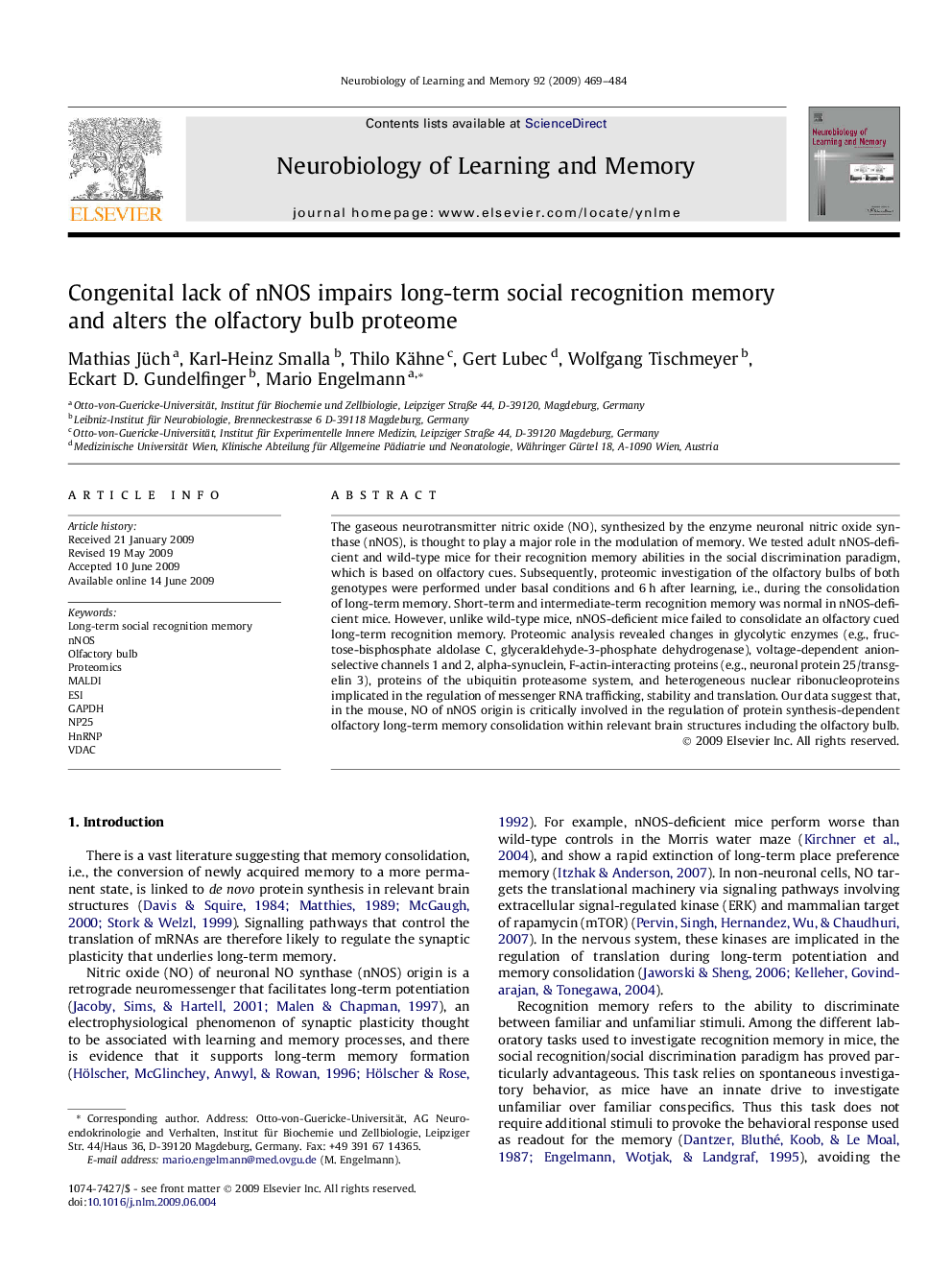| Article ID | Journal | Published Year | Pages | File Type |
|---|---|---|---|---|
| 936885 | Neurobiology of Learning and Memory | 2009 | 16 Pages |
The gaseous neurotransmitter nitric oxide (NO), synthesized by the enzyme neuronal nitric oxide synthase (nNOS), is thought to play a major role in the modulation of memory. We tested adult nNOS-deficient and wild-type mice for their recognition memory abilities in the social discrimination paradigm, which is based on olfactory cues. Subsequently, proteomic investigation of the olfactory bulbs of both genotypes were performed under basal conditions and 6 h after learning, i.e., during the consolidation of long-term memory. Short-term and intermediate-term recognition memory was normal in nNOS-deficient mice. However, unlike wild-type mice, nNOS-deficient mice failed to consolidate an olfactory cued long-term recognition memory. Proteomic analysis revealed changes in glycolytic enzymes (e.g., fructose-bisphosphate aldolase C, glyceraldehyde-3-phosphate dehydrogenase), voltage-dependent anion-selective channels 1 and 2, alpha-synuclein, F-actin-interacting proteins (e.g., neuronal protein 25/transgelin 3), proteins of the ubiquitin proteasome system, and heterogeneous nuclear ribonucleoproteins implicated in the regulation of messenger RNA trafficking, stability and translation. Our data suggest that, in the mouse, NO of nNOS origin is critically involved in the regulation of protein synthesis-dependent olfactory long-term memory consolidation within relevant brain structures including the olfactory bulb.
